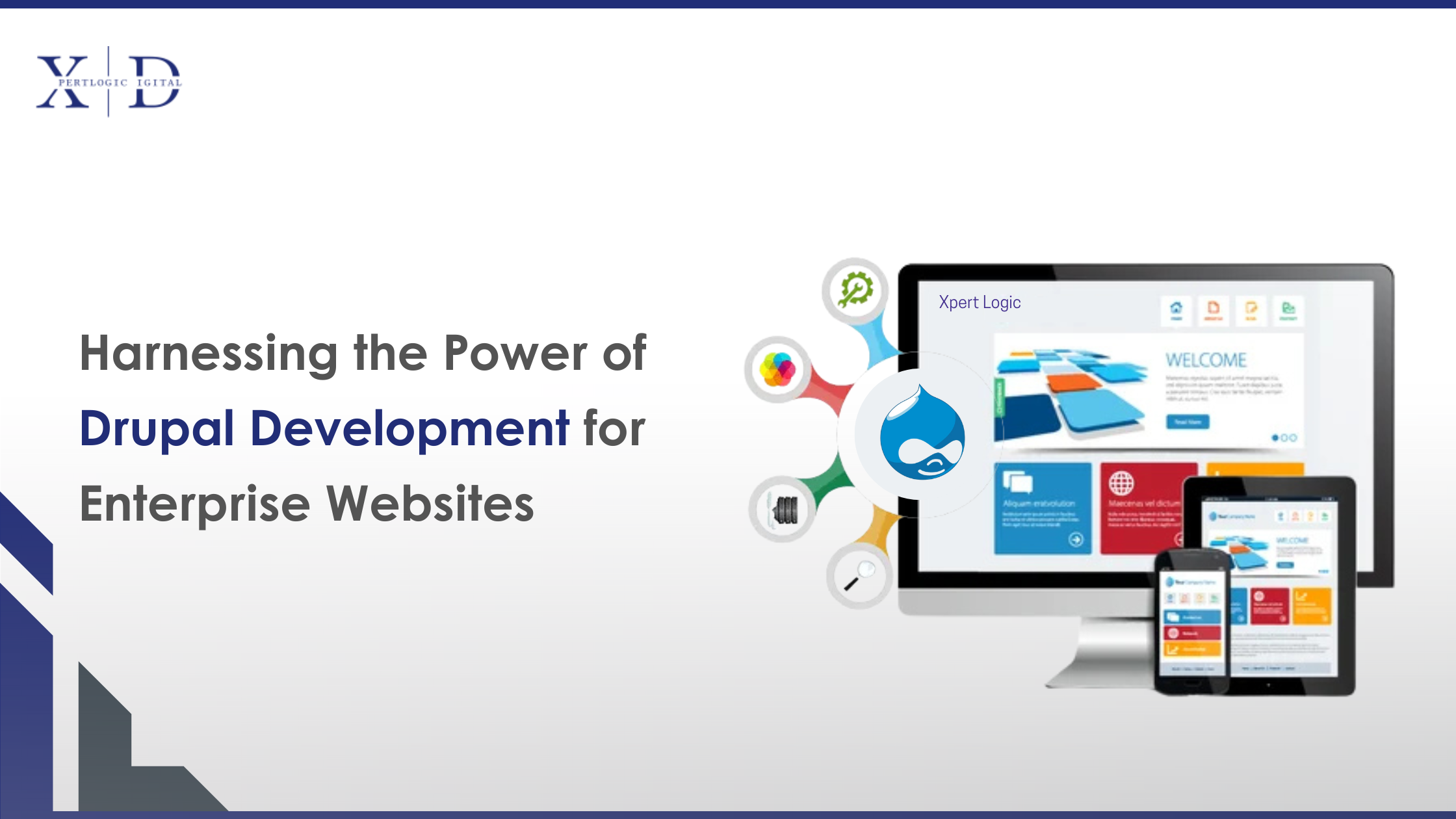
In the realm of content management systems (CMS), Drupal stands out as a leading platform for enterprises seeking robust, secure, and scalable web solutions. This blog explores how Drupal development can empower your organization’s digital presence and meet complex business requirements.
What Makes Drupal Ideal for Enterprises?
Drupal is an open-source CMS known for its flexibility and scalability, making it suitable for large organizations, government agencies, and educational institutions.
- Modular Architecture: Allows for extensive customization to fit specific needs.
- Strong Security: Trusted by governments and large corporations for its rigorous security standards.
- High Scalability: Efficiently handles high traffic and large volumes of content.
- Multilingual Capabilities: Built-in support for creating multilingual websites.
Key Benefits of Drupal Development
-
Unparalleled Flexibility and Customization
Drupal’s modular system enables developers to build custom functionalities.
- Custom Content Types: Create tailored content structures beyond basic pages and articles.
- Advanced Taxonomy: Organize and tag content for complex classification.
- Layout Management: Use tools like Layout Builder for custom page designs.
-
Enterprise-Level Security
Drupal offers robust security measures to protect sensitive data.
- Security Team: A dedicated team monitors and addresses security vulnerabilities.
- Granular Access Control: Define permissions for different user roles and groups.
- Regular Updates: Frequent security releases keep your site protected.
-
Scalability and Performance
Designed to perform under pressure, Drupal can handle:
- High Traffic Loads: Efficient caching mechanisms improve load times.
- Content-Rich Sites: Manage thousands of pages without performance degradation.
- API-First Architecture: Integrate with other systems and deliver content to multiple channels.
-
Multisite Functionality
Manage multiple websites from a single Drupal installation.
- Centralized Management: Streamline administration for various sites.
- Shared Codebase: Reduce development time by sharing modules and themes.
-
Multilingual Support
Drupal makes it easy to build multilingual websites.
- Built-In Modules: Use core modules for language detection and translation.
- Content Translation: Translate content entities, taxonomy terms, and user profiles.
Drupal Development Best Practices
-
Follow Coding Standards
Maintain high-quality code by adhering to Drupal’s coding standards.
- Readability: Write clean, understandable code for easier maintenance.
- Community Compliance: Facilitate collaboration with other Drupal developers.
-
Use Configuration Management
Manage site configurations effectively.
- Configuration Synchronization: Export and import configurations between environments.
- Version Control: Keep track of changes using tools like Git.
-
Implement Performance Optimization
Enhance site speed and user experience.
- Caching Strategies: Use Drupal’s caching features and modules like Memcache.
- Optimize Images: Implement lazy loading and image compression.
-
Ensure Accessibility
Develop websites accessible to all users.
- Adhere to WCAG Guidelines: Follow Web Content Accessibility Guidelines for compliance.
- Semantic HTML: Use proper HTML tags for better screen reader compatibility.
Case Study: Drupal Empowering a Government Portal
National Services Agency needed a secure, scalable platform for their public services portal.
- Challenges: High security requirements, vast amounts of content, multilingual support.
- Solutions:
- Developed a Drupal-based portal with stringent security measures.
- Implemented content workflows for efficient management.
- Enabled multilingual capabilities for serving diverse populations.
- Results:
- Improved public engagement with accessible information.
- Streamlined internal processes with effective content management.
- Enhanced security compliance with government standards.
Why Choose Drupal Over Other CMS Platforms?
- Complex Workflows: Ideal for organizations needing intricate content workflows.
- Integration Capabilities: Easily integrates with third-party applications and services.
- Community and Support: Benefit from a strong community offering modules, themes, and support.
Conclusion
Drupal development offers enterprises a powerful platform to build complex, secure, and high-performing websites. Its flexibility and scalability make it an excellent choice for organizations looking to provide rich digital experiences.


